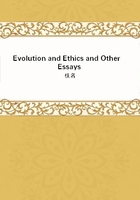
第48章
I am by no means concerned to defend the political economists who are thus charged with blundering; but I shall be surprised to learn that any have carried the art of self-entanglement to the degree of perfection exhibited by this passage. Who has ever imagined that wealth which, in the hands of an employer, is capital, ceases to be capital if it is in the hands of a labourer? Suppose a workman to be paid thirty shillings on Saturday evening for six days' labour, that thirty shillings comes out of the employer's capital, and receives the name of "wages" simply because it is exchanged for labour. In the workman's pocket, as he goes home, it is a part of his capital, in exactly the same sense as, half an hour before, it was part of the employer's capital; he is a capitalist just as much as if he were a Rothschild. Suppose him to be a single man, whose cooking and household matters are attended to by the people of the house in which he has a room; then the rent which he pays them out of this capital is, in part, wages for their labour, and he is, so far, an employer.
If he saves one shilling out of his thirty, he has, to that extent, added to his capital when the next Saturday comes round. And if he puts his saved shillings week by week into the Savings Bank, the difference between him and the most bloated of bankers is simply one of degree.
At page 42, we are confidently told that "labourers by receiving wages" cannot lessen "even temporarily" the "capital of the employer," while at page 44 it is admitted that in certain cases the capitalist "pays out capital in wages." One would think that the "paying out" of capital is hardly possible without at least a "temporary" diminution of the capital from which payment is made. But "Progress and Poverty"changes all that by a little verbal legerdemain:-,. . . "For where wages are paid before the object of the labour is obtained, or is finished--as in agriculture, where ploughing and sowing must precede by several months the harvesting of the crop; as in the erection of buildings, the construction of ships, railroads, canals, &c.--it is clear that the owners of the capital paid in wages cannot expect an immediate return, but, as the phrase is, must "outlay it" or "lie out of it" for a time which sometimes amounts to many years. And hence, if first principles are not kept in mind, it is easy to jump to the conclusion that wages are advanced by capital" .
Those who have paid attention to the argument of former parts of this paper may not be able to understand how, if sound "first principles are kept in mind," any other conclusion can be reached, whether by jumping, or by any other mode of logical progression. But the first principle which our author "keeps in mind" possesses just that amount of ambiguity which enables him to play hocus-pocus with it. It is this; that "the creation of value does not depend upon the finishing of the product" .
There is no doubt that, under certain limitations, this proposition is correct. It is not true that "labour always adds to capital by its exertion before it takes from capital its wages" , but it is true that it may, and often does, produce that effect.
To take one of the examples given, the construction of a ship. The shaping of the timbers undoubtedly gives them a value (for a shipbuilder) which they did not possess before. When they are put together to constitute the framework of the ship, there is a still further addition of value (for a shipbuilder); and when the outside planking is added, there is another addition (for a shipbuilder).